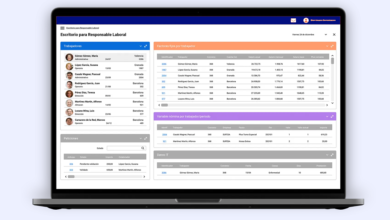
A recent IONOS study revealed that a vast majority of Spanish SMEs surveyed (77%) consider sustainability and environmental protection important to their business.
When operations are smaller, SMEs and start-ups often underestimate the value they bring to the embrace environmental sustainability. According to a study by Axpo, CO2 emissions made by Spain could be reduced by 14% if Spanish small and medium-sized companies consumed green energy and adopt energy efficiency measures. Therefore, it is more important than ever that they evaluate their strategy, also taking into account that environmental practices increasingly attract consumers and that corporate social responsibility influences brand reputation.
More generally, the concern of the Spanish for the future of the planet is 89%, according to a study “One Green Step”, carried out by Garnier. That is why staying aligned with environmental awareness can not only sympathize with a wide spectrum of consumers, but also increase employee morale, by driving a sense of purpose in job roles that helps retain key personnel.
How technology can help SMEs go green
Identifying exactly how to transform sustainability practices can seem overwhelming, but there are a range of different technological processes, steps and solutions that SMEs can use to reduce their environmental footprint.
Collaborative solutions in the cloud
One of those ways is to implement collaborative cloud solutions, which can be a cost-effective way for employees to engage with their work and will help any business on its sustainability journey.
Cloud computing offers a green IT approach as it has several environmental benefits compared to traditional on-premises hardware. Various studies reveal that small and medium-sized businesses can save between 60% and 70% by moving to the cloud. Considering that in Spain, 78% of SMEs surveyed by IONOS believe that saving energy is an important aspect of their sustainability strategies, implementing the cloud can be a way to help support this.
Their scalability it also means that businesses only use what they need, and this utilization enables greater energy and resource efficiency in the data center managing multiple networks at once, consolidating the server footprint as needed. The cloud also enables employees to work more efficiently, accessing information from anywhere, and minimizing reliance on hardware, which has a more negative impact on the environment.
A Hybrid Trading Approach
Operating as a small business can often mean managing both physical and digital spaces, so an e-commerce offering can be a positive part of your green strategy. E-commerce has the potential to reduce carbon and economic footprint as the need for physical stores decreases.
While the idea of setting up an eCommerce website may seem daunting, using eCommerce website builders can enhance the success of this transformation. as it provides simple and effective layouts that are easy to set up and can be adapted to the needs of the company. Ultimately, this can allow SMEs to become less dependent on their physical stores and help reduce their carbon footprint, by reducing electricity use in the facility or transporting employees or customers.
For those managing a physical space, looking at the broader role businesses can play in the society around them is a vital part of the sustainability puzzle broader, and our research found that almost 76% of companies highlight the importance of having social responsibility within the local community. Especially as this can contribute to both brand awareness and a broader green strategy.
Third Party Green Credentials
When exploring ways to improve sustainability, SMEs consider all aspects of the business, including the environmental impact of the suppliers they work with. Our research revealed that 69% of those surveyed believe that selection of sustainable suppliers it is important to your overall green strategy.
For example, when it comes to cloud or hosting providers, understanding if the provider is committed to renewable energy should be the first step. In the case of IONOS, the data centers operate, in all their standard operations, with 100% renewable electricity. Second, since more than 40% of a data center’s energy consumption can be attributed to cooling systems, it is imperative to focus on optimizing these systems. In this regard, IONOS has been able to reduce the absolute energy use in its data centers by 14% from 2018 to 2021. Alongside this, focusing on servers is also key to reducing energy use, emissions of carbon and improve efficiency.
In short, the implementation of these processes and technical solutions can be an effective first step for any business towards a greener future. In a world where it is increasingly crucial for companies of all sizes to have a clear sustainability strategy, there is no reason to delay.
Randeep Sanghera, Director of Sustainability at IONOS.



